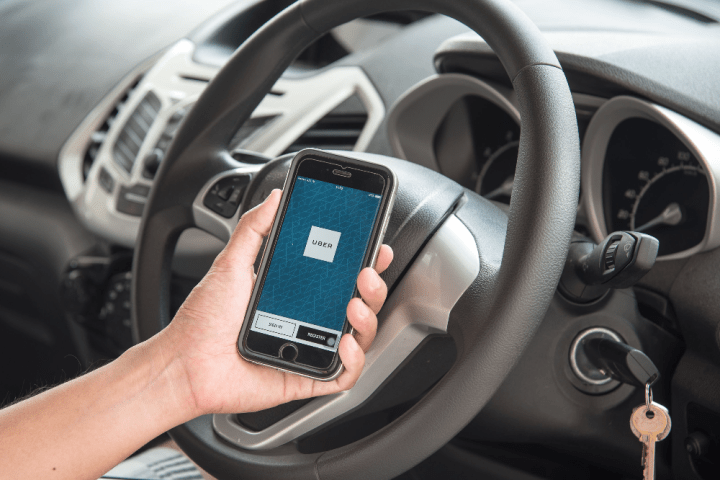
As per the U.S. Federal Highway Administration (FHWA), per-capita vehicle miles of travel in America have been on the steady decline, with fewer and fewer young people obtaining drivers licenses, and more and more clogged highways making the notion of getting behind the wheel as an individual a bit of a headache. And 7Park notes, “consumers are preferring ridesharing to vehicle ownership more than ever.” In fact, 13 to 15 million American adults will use a ridesharing service by the end of 2016, research finds. As such, the opportunity for companies like Uber and Lyft is huge, but who’s really winning between the two biggest players in the game?
According to 7Park’s findings, while Lyft may be closing in on Uber in the U.S., Uber, aided by its three-year head start against Lyft, is still top dog. The original and largest ridesharing company maintains a firm grasp on the majority of the U.S. market, but Lyft has been gaining year over year in 19 of the top 20 U.S. cities. And much of Uber’s dominance can be attributed to its top five markets of New York City, San Francisco, Los Angeles, Chicago, and Washington DC. In fact, 89 percent of the company’s total U.S. revenue comes from just 10 cities, and 60 percent comes from the top five.
But folks using Uber aren’t exclusively tied to one ridesharing service. Rather, 7Park discovered, “Lyft’s gains in U.S. market share are meaningfully impacted by crossover riders, [as] Uber riders have been experimenting with the competing service at an increasing rate.”
And as American passengers keep switching back and forth between Lyft and Uber, experts say that both companies may actually be “close to saturating … their major U.S. markets as the rate of growth in the number of Americans who use a ridesharing service contracts.” So that, of course, means that both companies need to go abroad.
In this sense, it certainly seems as though Uber is far outpacing its closest American competitor, but it’s not without its challenges. This year, the company was dealt a blow by being effectively pushed out of China, but 7Park finds that Uber has learned from its mistakes, and is now “competing well with [other] native Southeast Asia ridesharing leaders.” India will become a huge potential opportunity for the industry, with an estimated $12 billion taxi market up for grabs.
All in all, folks today are both spending more time and more money in and on ridesharing services. In fact, 7Park determined, “If Uber serves as a substitute for car ownership today, and the costs of ownership thereof, the company’s potential addressable U.S. market may be around $2.2 trillion.” Of course, there are still major hurdles to be overcome, including regulations posed by various government bodies. But all the same, when it comes to the transportation industry, it looks like ridesharing’s future is bright.

